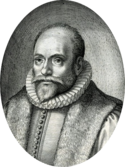A brief devotion / teaching that Alan recently shared:
Mark 9: 20-24. CSB. (The Christian Standard Bible translation)
So they brought the boy to him. When the spirit saw him, it immediately threw the boy into convulsions. He fell to the ground and rolled around, foaming at the mouth.“How long has this been happening to him?” Jesus asked his father. “From childhood,” he said.
“And many times it has thrown him into the fire or water to destroy him. But if you can do anything, have compassion on us and help us.”
Jesus said to him, “‘If you can’? Everything is possible for the one who believes.”
Immediately the father of the boy cried out, “I do believe; help my unbelief !”
I included the early verses of that passage for context, but for me the key verse is the capper, the punch line: “Lord I believe. Help my unbelief.”
I love how human that statement is, this co-mingling of belief and unbelief.
And this is simultaneous. If you say those sentences, “I believe. Help my unbelief.” – there is less than a second between those sentences. These can exist in the same person, at the same time, this faith and doubt, this belief and unbelief.
I think that in the modern American church, we flinch at the notion of unbelief, of doubt, those are harsh-sounding words. Perhaps you’ve been in situations where expressions of doubt or uncertainty over a particular bit of theology was greeted with … criticism, with condemnation. Or perhaps you’ve been told than any little bit of doubt is sin.
But no, that is not the case. “Lord I believe. Help my unbelief.”
So I prefer to think in terms of certainty and uncertainty. Maybe uncertainty, that is a less troublesome-sounding word than doubt or unbelief.
But whatever we call it, it goes hand-in-hand with belief. Doubt and faith, we can think of them as different sides of the same coin – but remember, it is the same coin!
A lot of churches recite the Apostles Creed, as part of their service. Our church has a point where we recite something together, often a Bible passage, and every month or so it’s the Apostles Creed. Now there’s one clause I’m not sure about, but most of the time I’m at a solid 98% on the Creed. But I’ll be honest, there are times when I scan through the Creed and …. I’m more like believing 75% of that stuff.
But those questions, whatever momentary uncertainties I may have, they aren’t because I don’t believe. It’s actually because I want to take my faith seriously, I want to know what I believe. That’s why I study, why I read theology, to know as best I can what I believe. And I do that with a willingness to learn – and if I’m gonna learn, I need to be willing to change my mind a little bit, there need to be some places where I set my certainty aside. So I can learn.
I would also mention ideas of essentials versus non-essentials in terms of theologies. Essentials are the foundational things, and to me that’s a pretty small list, mostly revolving around the person and work on Jesus … and the types of things in the Apostles Creed. Yes, there are some things we stand firmly on, but there are a lot of areas, lots of doctrines, where some questions, some uncertainty, some willingness to learn … not just not a bad thing, might actually be a good thing.
“Lord I believe. Help my unbelief.”
So in conclusion, which is what every preacher says when they have 10 more minutes to go and 4 more key points to make … but in conclusion, I intend this to be encouraging. Give yourself grace – give others grace, of course, but give yourself grace … for your moments of … call it whatever we want … our moments of uncertainty, of doubt, of unbelief … remember that they are OK. It’s not about being fully one or the other, believing or unbelieving; as humans, we are a strange melange of both.
Doubts are OK. Questions are OK. God can handle your questions, and he can handle your doubts.
Doubts, questions, even times of unbelief … they don’t mean that you don’t believe.














